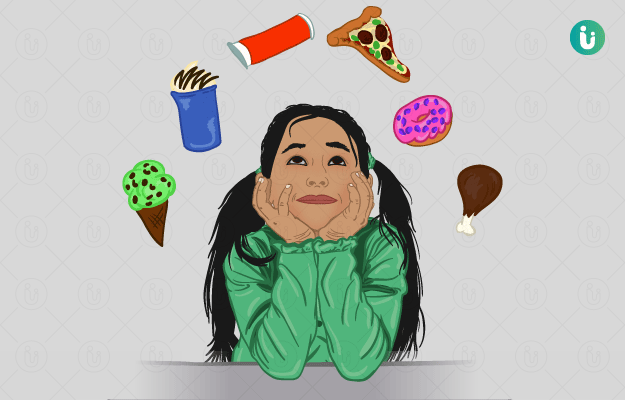What is Bulimia Nervosa?
Bulimia nervosa, or binge eating disorder, is a psychiatric condition marked by recurring periods of bingeing and purging. It is common in both males and females but occurs more often in teenage girls. The person may want to binge eat (eating aggressively large amounts of food in a short period of time) at any time, with a sense of loss of control over eating, followed by a sudden shamefulness; hence, the person can show compensatory behaviours of purging, such as self-induced vomiting, using weight loss medications, taking laxatives and diuretics, over-exercising, and fasting. Occasionally, the condition can also be life-threatening.
What are its signs and symptoms?
The important signs and symptoms include
- Uncontrolled eating, not wishing to eat in public
- Extremely critical about body shape and weight
- Mood swings, anxiety, and depression
- Frequent bathroom visits after a meal
- Smell of vomiting
- Excessive exercise
- Use of laxative, diuretics, and weight loss pills
- Fluctuations in weight, but the person usually maintains a normal weight. Often physicians and some persons assume that bulimia persons are underweight, and this can cause bulimia to go undetected or it can be missed for a longer period
- Swollen hands and feet
- Scars or sores on the knuckles
- Discolouration of teeth and damage to gums
- Reluctance in food and strict dieting
Troubled by obesity? Failed to lose weight? Now control weight easily by myUpchar Ayurveda Medarodha Weight Control Tablet. Get started today and take steps towards a healthy life.
What are its main causes?
The exact cause of bulimia remains unknown. Some contributing factors may be genetic, family history, concerns about body weight and body shape, low self-esteem, obsessive personality or perfectionist character, anxiety, and depression.
How is it diagnosed and treated?
Based on the above signs and symptoms, the physician can diagnose bulimia by
- Questioning eating habits, weight loss methods, and physical symptoms
- Primary tests, including blood, urine, and electrocardiogram to assess the heart function
- Diagnostic and statistical model-5 (DSM-5) tool to confirm the diagnosis
A team of professionals, including a psychiatrist, physician, and dietician, is required for the treatment of bulimia. Treatment may start with psychological counselling, but depending upon the severity of symptoms, medications, such as anti-depressants, can be prescribed. Fluoxetine is an antidepressant approved by the FDA. Other forms of treatment include psychotherapy with cognitive behavioural therapy, family-based treatment, interpersonal psychotherapy, nutrition education, and hospitalisation.
Eating regularly and not restricting the diet is important for overcoming bulimia. Some help groups are available, which can be joined as per the patient’s choice. Although the treatment takes time, bulimia can be completely cured.

 Doctors for Bulimia Nervosa
Doctors for Bulimia Nervosa  OTC Medicines for Bulimia Nervosa
OTC Medicines for Bulimia Nervosa



















